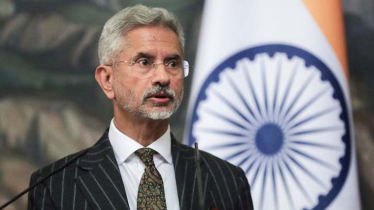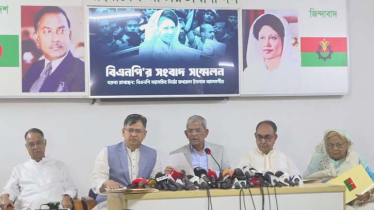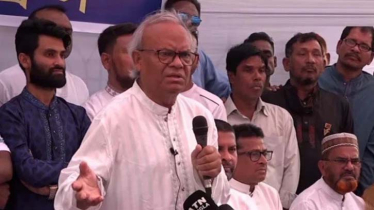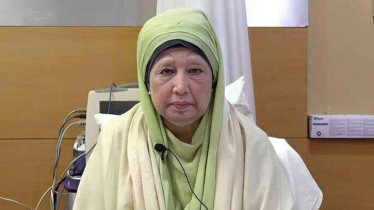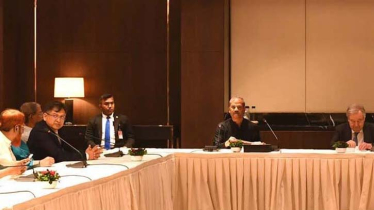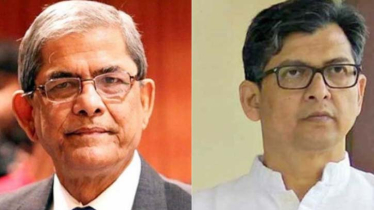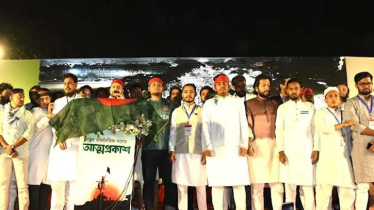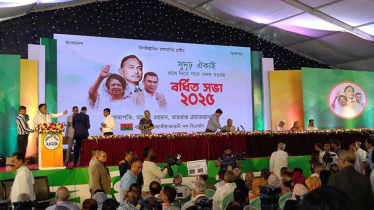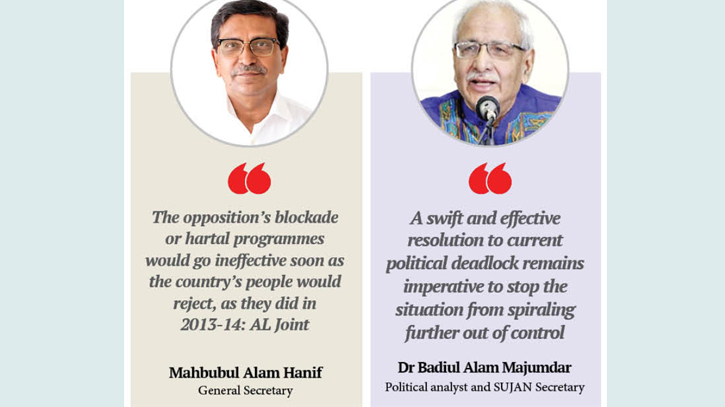
Photo : Messenger
Political tensions and uncertainty are escalating across the country in recent days as the 12th parliamentary polls draw nearer – with the ruling party Bangladesh Awami League (AL) maintaining its firm stance against the opposition camp, led by arch-rival BNP (Bangladesh Nationalist Party).
The upcoming elections, scheduled for early January next year, have become a focal point of contention between the two major political factions, with disagreements over the structure of the polls-time government at the forefront of the dispute.
The BNP has been advocating for the formation of a party-neutral caretaker administration, emphasizing the need for a fair and unbiased electoral process. In contrast, the AL remains resolute in its support for the current government's oversight, citing constitutional provisions that allow for the continuation of the incumbent administration during the election period.
The AL-led government, under the leadership of Prime Minister Sheikh Hasina, has made its position unequivocally clear, indicating that it will not grant any concessions to the BNP or its key ally, Jamaat-e-Islami.
Party insiders have underscored the government's determination to suppress any subversive activities orchestrated by the opposition parties, particularly targeting the BNP, which they categorize as a platform for "terrorists."
AL presidium member Lt. Col. (Retd.) Muhammad Faruk Khan emphasised the government's readiness to use stringent measures to prevent any attempts to derail the electoral process.
"We will not compromise with the BNP," he stated, signaling the authorities' preparedness to handle any disruptive movements with an iron hand.
This robust stance comes as a response to the BNP's previous attempts to gather mass support, including a significant demonstration on October 28, which has been a cause for concern for the ruling party, he said.
Echoing these sentiments, AL joint general secretary Mahbubul Alam Hanif expressed the party's determination to thwart any large-scale gatherings orchestrated by the opposition ahead of the elections.
"We would not give any chance to the opposition anymore ahead of polls," Hanif stated, dismissing concerns about the effectiveness of the BNP-Jamaat's blockade programme.
He asserted, "Their blockade or hartal programmes would go ineffective soon as the country's people would reject, as they did in 2013-14."
The impasse has not only polarised the political spectrum but has also resulted in a burgeoning wave of civil unrest with protests and tragic incidents across the country.
Political analysts and experts on elections, have stressed the urgent need for substantive discussions between the warring factions, underscoring the potential for further calamity if a resolution remains elusive.
In light of the escalating tensions and the alarming loss of lives during recent demonstrations, Dr. Badiul Alam Majumdar, a noted political analyst, has issued a stark warning about the potential for a significant escalation in the absence of meaningful dialogue.
“A swift and effective resolution to the current political deadlock remains imperative to prevent the situation from spiraling further out of control,” he said.
Meanwhile, BNP has announced fresh blockade for Wednesday and Thursday, on road, water and railways across the country at the end of the five-day blockade in two phases.
The blockade will be in effect from 6:00 am Wednesday and will end on 6:00 am Friday.
BNP Senior Joint Secretary General Ruhul Kabir Rizvi came with the new announcement in a virtual press conference on Monday afternoon.
The recent clash between the BNP and law enforcement personnel during the grand rally on October 28 culminated in the death of a Jubo Dal leader, alongside numerous injuries to BNP leaders and activists.
Subsequent to this event, the nation witnessed a surge in violence, leading to the loss of lives, including a police constable and a journalist, in various parts of the country. The subsequent arrests of a significant number of opposition figures, including the BNP secretary-general Mirza Fakhrul Islam Alamgir, have further exacerbated the already tense situation, eliciting accusations of stifling political dissent.
In response to the mounting crisis, the BNP and its long time ally Bangladesh’s largest Islamist party Jamaat-e-Islami have initiated a series of countrywide protests, including general strikes and blockades, to press home for the resignation of Prime Minister Sheikh Hasina.
Of late, Bangladesh's Islamic political parties, including the Islami Andolon Bangladesh and the Bangladesh Khelafat Majlish, have thrown their weight behind the opposition's movements, amplifying the gravity of the situation.
The Islami Andolan Bangladesh, following a mammoth rally in the capital, has issued an ultimatum to the government, demanding its resignation and the transfer of power to a national government inclusive of all registered and represented political parties, by November 10.
Additionally, the Bangladesh Khelafat Majlish has scheduled nationwide protests on the same date, calling for the release of their detained leaders, notably Mamunul Haque, who faces an extensive list of charges.
Prominent international and local figures, including the United States Ambassador to Bangladesh, Peter Haas, have advocated for immediate and unconditional dialogue between the AL and BNP to alleviate the spiraling crisis.
Messenger/Disha

